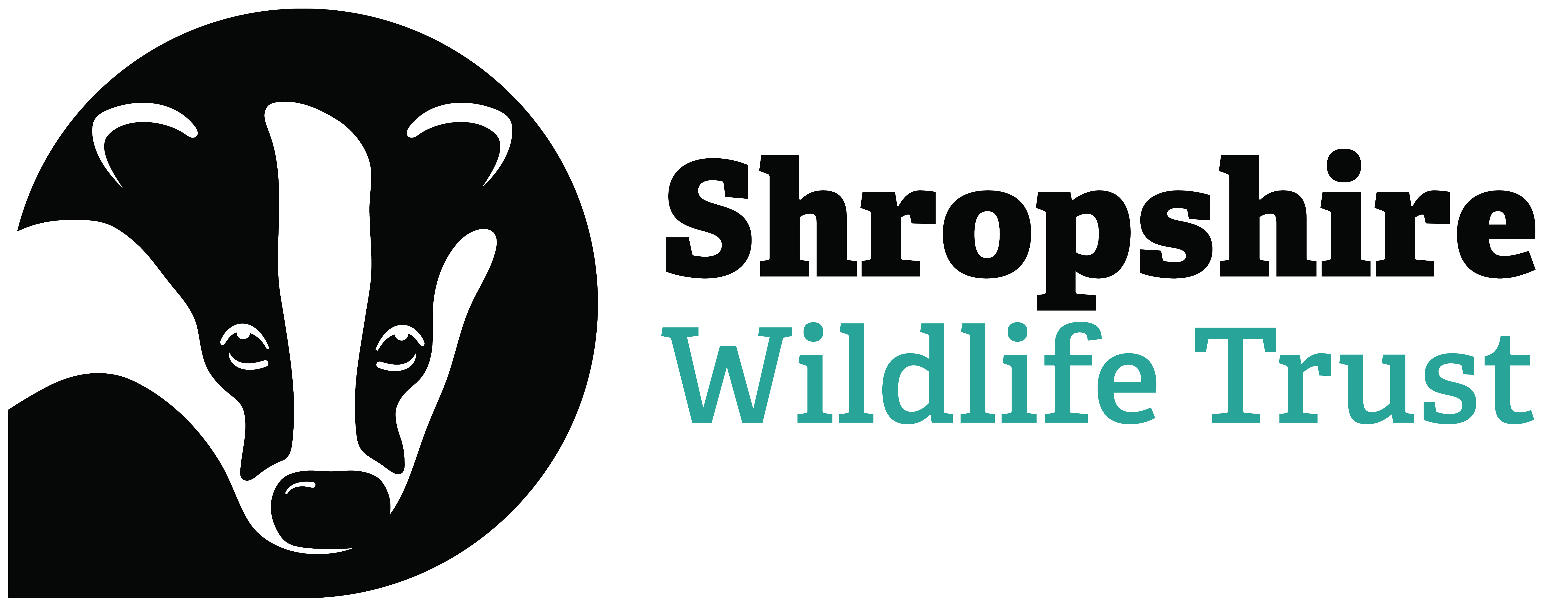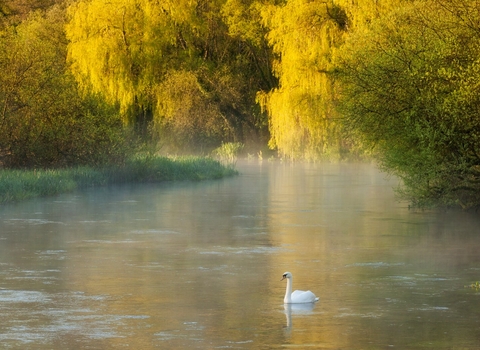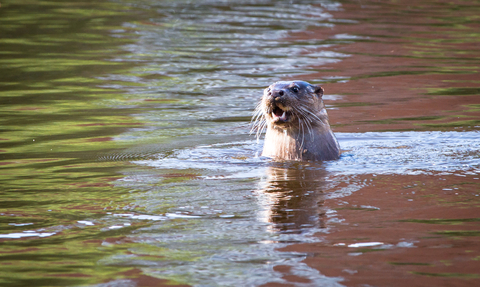
River friendly Shropshire
In a world of nature and climate crisis it can be difficult to work out what to do first.
The county of Shropshire has over 3,846 miles of water course from the tiniest of brooks to the mighty Magnificent Severn. This arterial network supplies our drinking water and supports a diverse range of wildlife. However, our water environments are degrading fast with less than a fifth of England’s rivers considered healthy. Misconnected drains, plastics, chemical pollution, climate change and surface runoff from roads and farms are just some of the challenges in which make maintaining river health difficult.
However, by frequently monitoring and learning about the signs of pollution in our waterways, awareness of challenges facing our rivers can be recognised as well as allow necessary action to take place so they can be improved. Monitoring and responding to harmful pollution or practices is a critical part of helping create a Nature Recovery Network, whilst we are all trying hard to heal the wounds of environmental decline we need to be vigilant to prevent new and further damage.
Please follow the Government's latest advice and rules with regard to Coronavirus. You can undertake some of the activities listed below from your home, e.g. online learning, downloading the app, but other activities such as group litter picks will be on hold for now.
You can undertake this FREE online training course from West Mercia Search & Rescue. Hundreds of people drown every year, and most of them had NO intention of going in the water. This free course teaches the risks, how to help someone in water, and the basics of saving a life:
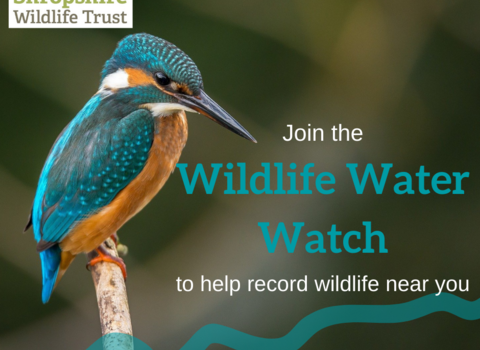
The Wildlife Water Watch
Take part in the Wildlife Water Watch and help us record wildlife across our top 50 watercourses in Shropshire
To take part click on the below link
Litter Picking
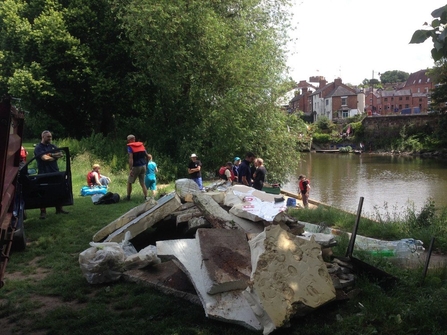
Every year, an estimated 8 million tonnes of litter enters the world’s oceans, mush of this washes down from our rivers. Plastic poses the biggest threat to marine wildlife as it doesn’t just disappear; it simply breaks down into smaller and smaller pieces, and has detrimental effects on food chains.
But it’s not just our marine life at risk from litter. Mammals like hedgehogs and birds like swans frequently suffer injuries as a result of getting caught up in waste.
Any litter removed from a natural ecosystem helps wildlife and creates a better space for humans too! Counteract litterbugs by being a litter picker. You don't have to be on an organised litter pick to help, just pick up any rogue litter when you see it and pop it in the bin! Or how about going for a walk and picking up pieces as you go?
Top tips for picking litter:
- Be prepared: Carry gardening gloves with you (or a litter picker if you have one!) when you're heading out on a walk in case you spot any litter - they'll protect your hands from anything mucky or sharp. If you don't think you'll come across a bin, bring a bag so you can carry any litter away with you.
- Stay safe by staying away from needles and not picking up anything with human waste (like nappies), electrical items, or holding any potentially dangerous chemicals. If you're not sure what it is, don't pick it up. Take extra care when picking up anything sharp.
- Report any of the above items, anything you think might be dangerous, or any dumped electrical items or paint to the local council or landowner. If you come across a fly-tipping site, or a dead animal, report it.
- Sort your haul: Instead of chucking it in a regular bin, you could go one further and separate what you've collected to be recycled! If possible, safety-proof anything you find that could be a danger to wildlife if it ends up in the wrong place further down the line, for example, cutting up 6-pack rings or plastic bottle cap rings.
- Wash your hands: Always make sure you wash your hands properly after picking litter!
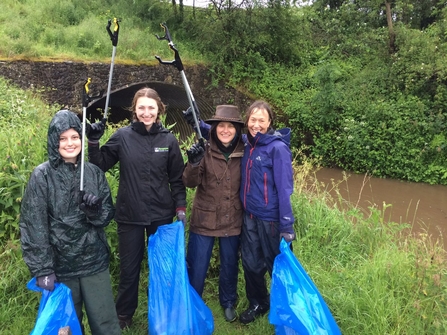
Download the attached record sheet and risk assessment to run your own litter clean-up!
Take action at home
Conserve Water
If we all do our part in conserving precious water supplies, we can make a huge difference for the environment.
Water conservation means using water wisely and not contributing to unnecessary wastage. Using less water keeps more in our ecosystems and helps to keep wetland habitats topped up for animals like otters, water voles, herons and fish.
How to use less plastic
Plastic is choking our seas and natural world. It poses a huge threat to wildlife because it doesn’t just disappear; it simply breaks down into smaller and smaller pieces. Aside from the dangers of becoming trapped or injured, animals often ingest plastic fragments, with the potential to build up in the bodies of animals right up the food chain - from microscopic animals right up to large predators, including us!
How to build a pond
A wildlife pond is one of the single best features for attracting new wildlife to the garden.
It is thought that some amphibians, such as frogs, are now more common in garden ponds than in the countryside. You can build a pond at any time during the year, but if you start in autumn or late winter, it will get established much quicker.
Make a bog garden
Instead of draining, make the waterlogged or boggy bits of garden work for nature, and provide a valuable habitat.
A bog garden can be created by adapting an existing soggy area, or from scratch, either at the edge of a pond, or as a standalone feature. Permanently damp, it creates an area where moisture-loving plants thrive. These plants are different to those suited to the standing water of a pond, so will attract a host of different wildlife.
A bog garden may be a better option than a pond for families with young children. Like a pond, it should attract frogs, toads and even grass snakes. Dragonflies and damselflies will perch on the taller grasses, and bees and butterflies will flit around the flowers.
Watch what you wash away
Watching how you wash and clean is an easy way to help out wildlife. Some of our favourite washing-up liquids and cleaning products can be harmful to wildlife with long-lasting effects. We wash many of these chemicals down our drains when we wash up or clean our kitchens and bathrooms, flushing them into rivers and seas.
DePave
Hard surfaces like tarmac and paving slabs block water from filtering into the soil. Rainwater then collects pollution like grease, litter and chemicals, transporting it rapidly into our precious water courses, wetlands, ponds, rivers and streams. Most wildlife also finds it hard to make a home in these hard surfaces. DePave encourages positive action around homes and communities, re-connecting people with nature. We also think these areas look much better after some DePave action!
Shropshire River Wildlife Recording Form
With funding from Tesco Bags of Help scheme, we launched the Shropshire Otter project in May 2017. Otter populations are fragmented throughout England but there have been many sightings in the River Severn, Shropshire. Our project aims to help secure their presence and improve their chance of survival.
As well as Otters we would like you to tell us if you spot Water Shrew, Water Voles, Kingfishers, Dippers and Non-Native Invasive species. For more information on Non-Native Species please click here
Please log your Shropshire River Wildlife records online by clicking here
All Otter records collected will be forwarded to the Shropshire Mammal Group and will be logged in the county records database.
For information on what to do if you find a dead otter, please please visit the
University of Cardiff Otter Project webpage here
The project has enabled us to train volunteers, undertake habitat management demonstrations with landowners and help guide the public on how they should interact with otters to ensure minimum disturbance without reducing public enjoyment.
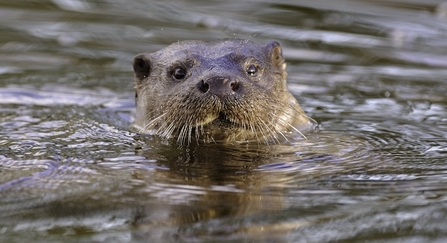
European Otter (Lutra lutra) - Andy Rouse/2020VISION
Shropshire Non Native Species Initiative
Invasive Non-Native Species (INNS) can be found in many habitats across the UK, and numbers are on the increase.
Together, we can help protect ourselves, Shropshire's wildlife, landscapes and environments.
Keep an eye out for non-native invasive species, and don't release, move or dump unwanted non-natives or exotic pets in the wild:
- It is illegal
- They can affect your health, spread disease and cause allergies
- They threaten your sport/hobby etc.
- They can threaten our native plants, animals and habitats
- They can cost you a lot of money if you are liable for their removal
Read more about this initiative and how you can help identify Non-Native Species here
Download
Landowners
What can you do to improve the health of our waterways? As well as the above dropdown information we run several projects with external funding that allows us to support landowners that either have a watercourses running through the land or to identify and improve potential water pollution sources. Find out more here.
